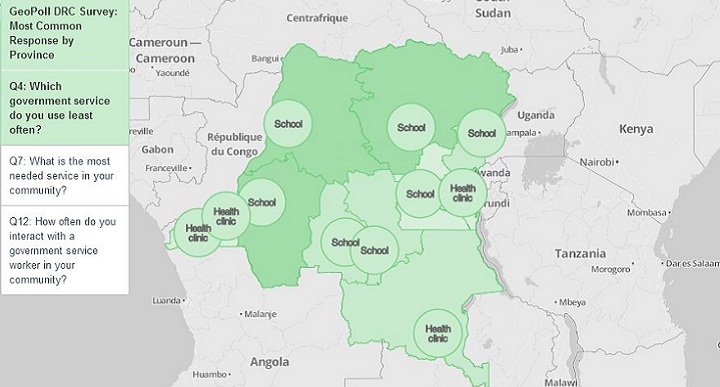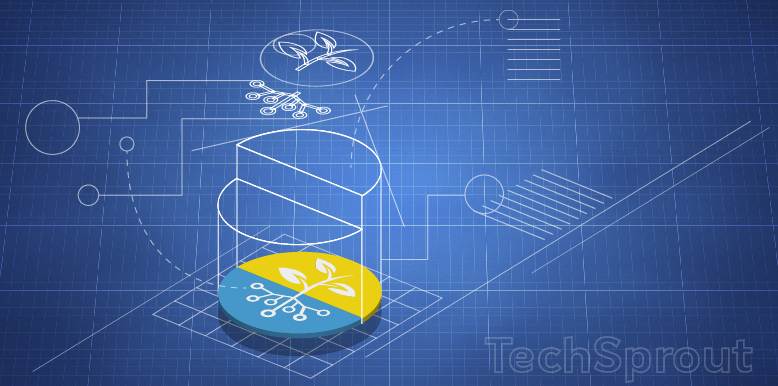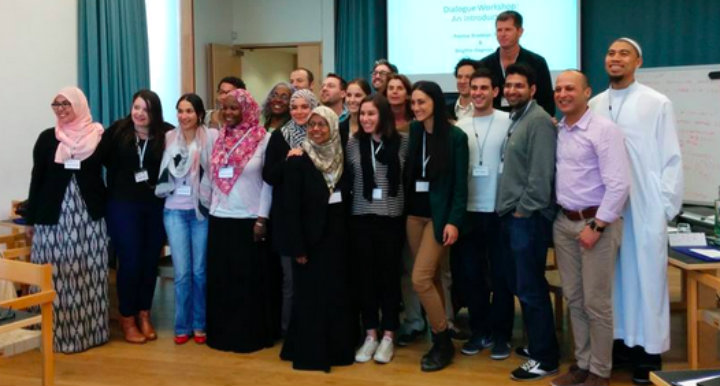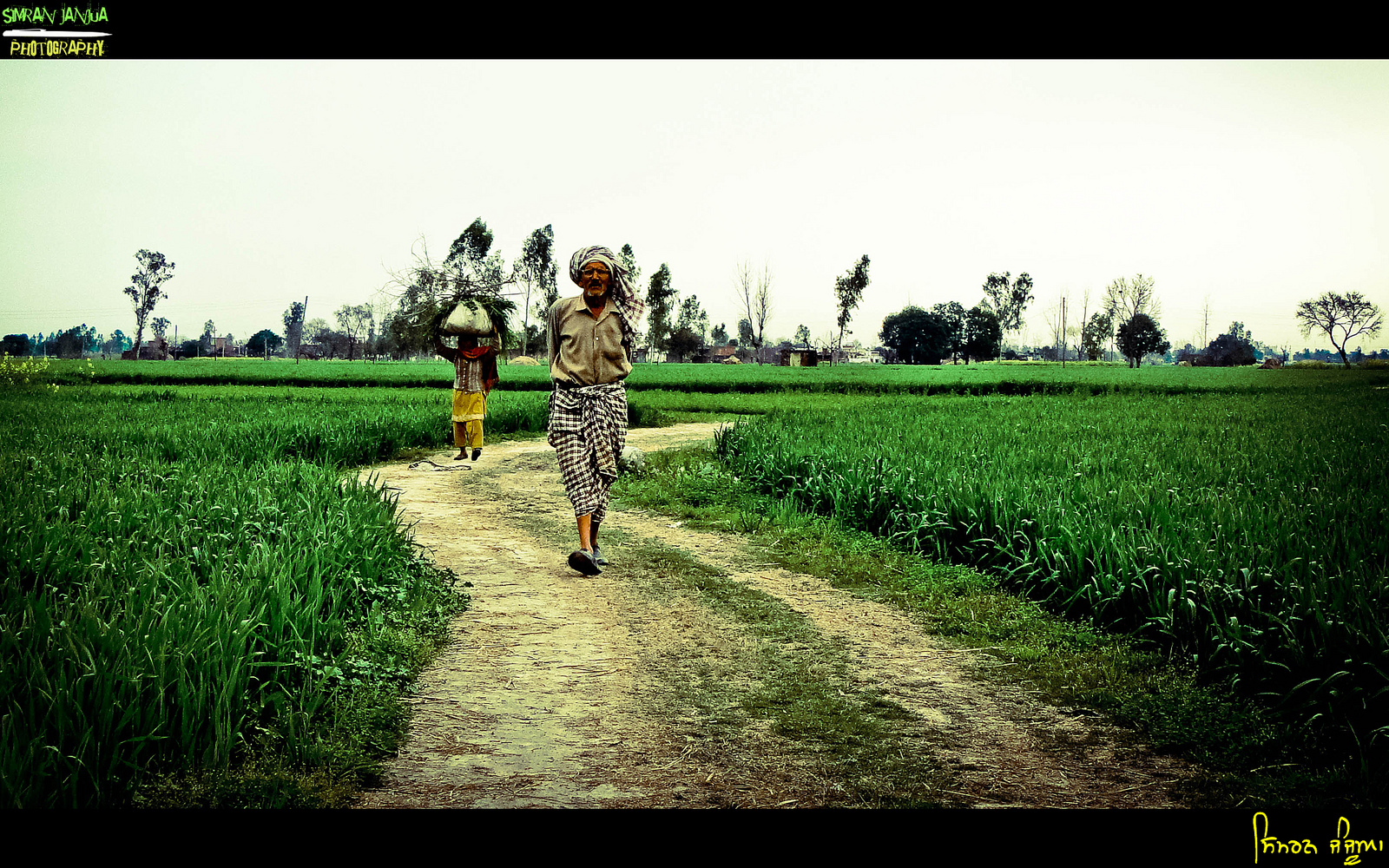On February 26, USAID received the “Best Government Policy for Mobile Development” award at GSMA’s Mobile World Congress 2013. And while the Mobile Solutions team was receiving an award in Barcelona, TechChange and the MS team were also receiving over 1,500 mobile poll responses from recipients in DRC taking part in an online exercise designed by 173 USAID staff and implementing partners in 21 countries. The way this was possible is through harnessing the same potential for public-private partnerships used for external implementation and applying it to internal education and collaboration at USAID.
Fig. 1: MapBox visualization of GeoPoll responses.
The exercise was part of a 4-week online course in Mobile Data Solutions designed to provide a highly interactive training session for USAID mission staff and its implementing partners to share best practices, engage with prominent technologists, and get their hands on the latest tool. Rather than simply simulating mobile data tools, USAID staff ran a live exercise in DRC where they came up with 10 questions, target regions, and desired audience. The intent was to not teach a tool-centric approach, but instead begin with a tech-enabled approach to project design and implementation, with an understanding of mobile data for analysis, visualization, and sharing.
Fig. 2: Student locations for TC311 class.
This would have been a formidable exercise for any organization, but fortunately we augmented USAID’s development capacity with the abilities of three organizations. TechChange provided the online learning space, facilitation, and interactive discussions. GeoPoll ran the survey itself using their custom mobile polling tool. And MapBox provided the analysis and visualization needed to turn massive data into a simple and attractive interface. (Want to check out the data for yourself? Check out the raw data Google Spreadsheet from GeoPoll!)
But while the creation of an interactive online workshop for small-group interaction requires barriers to scale, the content is under no such restrictions. One of the videos from our previous course on Accelerating Mobile Money provided an animated history of M-PESA, the successful mobile money transfer program in Kenya, which allows everything mobile phone users to pay for everything from school fees to utility bills and is proving transformative in cases such as Haiti.
Fig. 3: M-Pesa animation used for TC311 and USAID Video of the Week
But there’s still plenty of work to do. As mobile phones continue their spread to ubiquity, the challenges for applying their potential to development will only increase, along with the continuing possibilities as the technology continues to improve. However, in the short term, we’re focused on increasing mobile access, which is the topic of our next course. If you work at USAID or with an implementing partner, we hope that you’ll consider joining us and lending your voice to this process.




